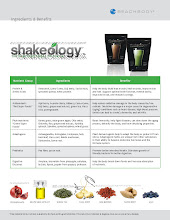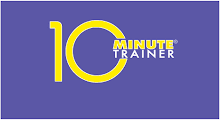
How eating fat will help you lose fat.
In 2008, researchers at Ben-Gurion University of the Negev in Israel found that people who followed low-fat diets lost less weight than people who followed low-carb or moderate-fat diets. The low-fat group lost an average of 6.5 pounds over 2 years, but the low-carb and moderate-fat groups lost about 10 pounds. Women did especially well on the moderate-fat diet, losing an average of 13 pounds during the study.Fat is an important element in weight loss for several reasons:
- Fat helps your body control blood sugar and insulin spikes after eating carbohydrates. Better sugar metabolism means less fat storage.
- Fat slows down digestion and aids nutrient absorption. You'll stay fuller longer and get more health benefits from the food you eat.
- Essential fatty acids (like omega-3s) may boost your metabolic rate and increase fat burning.
- Fat tastes good. It also provides a "mouthfeel" that is satisfying, which can help you be happy with less food.
If you reach for a box of low-fat or fat-free crackers or cookies because you want to lose weight, you may actually be sabotaging your diet. Manufacturers frequently replace fat with sugar in packaged food items to make them taste better. You think you're making a good decision by eating fat-free products, but the excess sugar and refined flour can lead to fatigue, cravings, mood swings, and weight gain caused by the overproduction of insulin—the fat-storage hormone. As a snack, a sliced apple with some peanut butter or a salad with oil and vinegar dressing would be a better weight loss choice. The complex carbs and healthy fats will maintain your blood sugar levels, boost your energy, and keep you satisfied longer.
What kind of fat should you eat? To get lean, you need to eat the right kind of fat. Avoid saturated and trans fats (which are found in red meat, full-fat dairy products, and many packaged foods), and instead choose monounsaturated and polyunsaturated fats. Here are some of the best sources of fat to help you reach your weight goal.
Fish. Fish like salmon, albacore tuna, herring, mackerel, and sardines contains beneficial amounts of omega-3 fatty acids. Most experts agree that eating two servings of fatty fish per week is safe for people who are worried about mercury or other toxins. (Pregnant women should consult with their doctors about consuming fish.) If you don't like fish, a quality supplement like Beachbody's Core Omega-3™ will give you the benefits without the fishy taste.
- Olive oil. Heart-healthy oils like olive, canola, and peanut oil are excellent sources of fat for dieters. They have also been shown to lower bad cholesterol and reduce the risk of heart disease. Use them sparingly when sautéing, or drizzle them over your favorite salad or vegetables with a little vinegar and some herbs to maximize the absorption of nutrients. Moderation is important: You really only need about a teaspoon of oil to get all its benefits. Using more will add significant calories.
- Avocados. Eat a spinach and carrot salad with a little avocado, and you'll not only get a dose of good fat, but you'll also absorb more phytonutrients like lutein and beta-carotene. Scientists at Ohio State University in Columbus found that more antioxidants were absorbed when people ate a salad containing avocados than when they ate a salad without this tasty fruit. One-quarter of an avocado will add flavor while only adding about 75 calories.
- Nuts. Almonds, walnuts, pecans, and peanuts are powerhouses of good nutrition—full of antioxidants, minerals, and monounsaturated fat. The Nurses Health Study, where more than 86,000 nurses were followed for 14 years, found that those who ate nuts regularly (about an ounce per day) tended to weigh less than those who didn't. The protein, fat, and fiber make nuts more filling, which helps dieters stay on track. Plus there's a psychological bonus to eating nuts: Because they're rich and satisfying, you probably won't feel like you're on a diet.
- Flaxseeds. Packing the triple wallop of fat, protein, and fiber, flaxseeds are a delicious and healthful addition to any diet. You can grind them up and add them to oatmeal, yogurt, salads, or vegetables, or pretty much anywhere you want a nutty crunch. They're a plant source of omega-3 fatty acids, making them a good choice for vegetarians or the aforementioned non-fish-loving folks. Ground flaxseeds also have 3 grams of fiber per tablespoon, which helps slow digestion and keep your blood sugar stable.
















